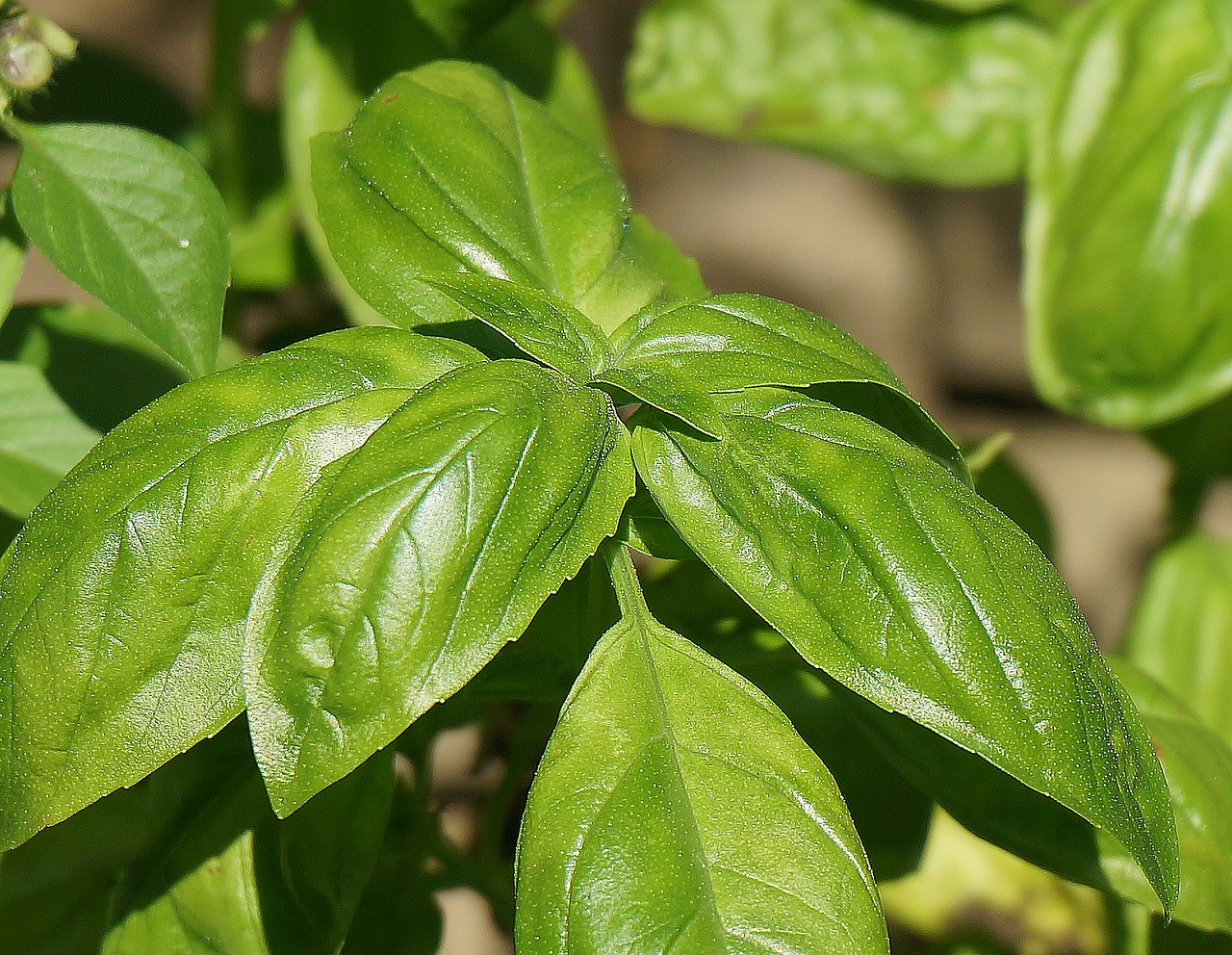Basil Essential Oil has a pleasantly fragrant, light and refreshing aroma with a sweet and herbaceous character. It promotes clarity of thought, enhancing happiness, and re-instills a sense of purpose.
Basil belongs to the mint family. Many different varieties of basil plants are grown around the world. Many of them have their own characteristic scents, which range from the clove scent of sweet basil to the citrus scent of lemon basil.
The sweet basil, also known as the common basil, is the variety that’s often used to create basil essential oil using steam distillation. Basil grows best in warm and dry conditions.

A Fragrant and Fragile Plant
Basil is a fragile plant which grows to be between 12 and 51 inches tall. It usually has green leaves, although in some varieties they may be purple-tinted. Basil has small white flowers which grow on the end of the plant’s stem.
Uses of Basil Essential Oil for the Mind
Basil essential oil is an especially beneficial essential oil to use when studying. It relieves stress and mental fatigue, and it enhances clarity and mental sharpness.
Basil Essential Oil Helps Relieve Depression Caused By:
- Mental fatigue
- Nervous tension and exhaustion
Blending Basil Essential Oil for Additional Causes of Depression:
- Tangerine and Lemon: When nerves feel ‘jagged’ and raw
- Rosemary and Lemon: Unable to focus and concentrate
- Pine and Thyme: Unnecessarily blaming self
- Pettigrain: Feeling insecure and vunerable
Uses of Basil Essential Oil for the Body
Experts note basil essential oil for its antibacterial and antifungal properties. Basil is often used as an air purifier or for cleaning the kitchen. Basil oil can treat small cuts, skin, sinus and bladder infections. It can also be an ingredient in mouthwash to keep good hygiene of the oral cavity.
The essential oil of basil can treat indigestion, constipation, and flatulence. Basil essential oil has analgesic properties, so it can provide relief from stomach pains, as well as headaches, injuries, and arthritis.
Basil essential oil can tone the skin, and relax muscle cramps. It also reduces itching from insect bites.
Basil in Ancient History
Basil is a part of many different cultures.
In ancient Greece, basil was a symbol of hatred. In African countries, locals believed the plant protected people against scorpions. A variety of basil found in India, known as tulasi or holy basil, plays an important role in the worship of Vishnu.
Basil became an important part of Orthodox Christianity for its use to produce holy water. It also played a role in the funerary rites, first in ancient Greece and Egypt, and then in other European cultures.
Basil in Modern History
According to Nicolas Culpeper, a seventeenth-century English botanist, the virtues of basil were a subject of some dispute. He commented on this in his entry for basil in his book The Complete Herbal:
“This is the herb which all authors are together by the ears about, and rail at one another (like lawyers). Galen and Dioscorides hold it not fit to be taken inwardly; and Chrysippus rails at it with downright Billingsgate rhetoric; Pliny, and the Arabian physicians defend it.”
His continues to chronicle some of the beliefs about basil’s tie with venom and venomous beings:
“Being applied to the place bitten by venomous beasts, or stung by a wasp or hornet, it speedily draws the poison to it; Every like draws his like. Mizaldus affirms, that, being laid to rot in horse-dung, it will breed venomous beasts.
Hilarius, a French physician, affirms upon his own knowledge, that an acquaintance of his, by common smelling to it, had a scorpion bred in his brain. Something is the matter; this herb and rue will not grow together, no, nor near one another: and we know rue is as great an enemy to poison as any that grows.“
Basil Essential Oil Cautions:
As with any other essential oil, observe some caution when using basil essential oil. Pregnant and nursing women should avoid basil essential oil.
It can cause skin sensitivity. Avoiding contact between basil essential oil and eyes, inner ears, and sensitive areas is advised.


